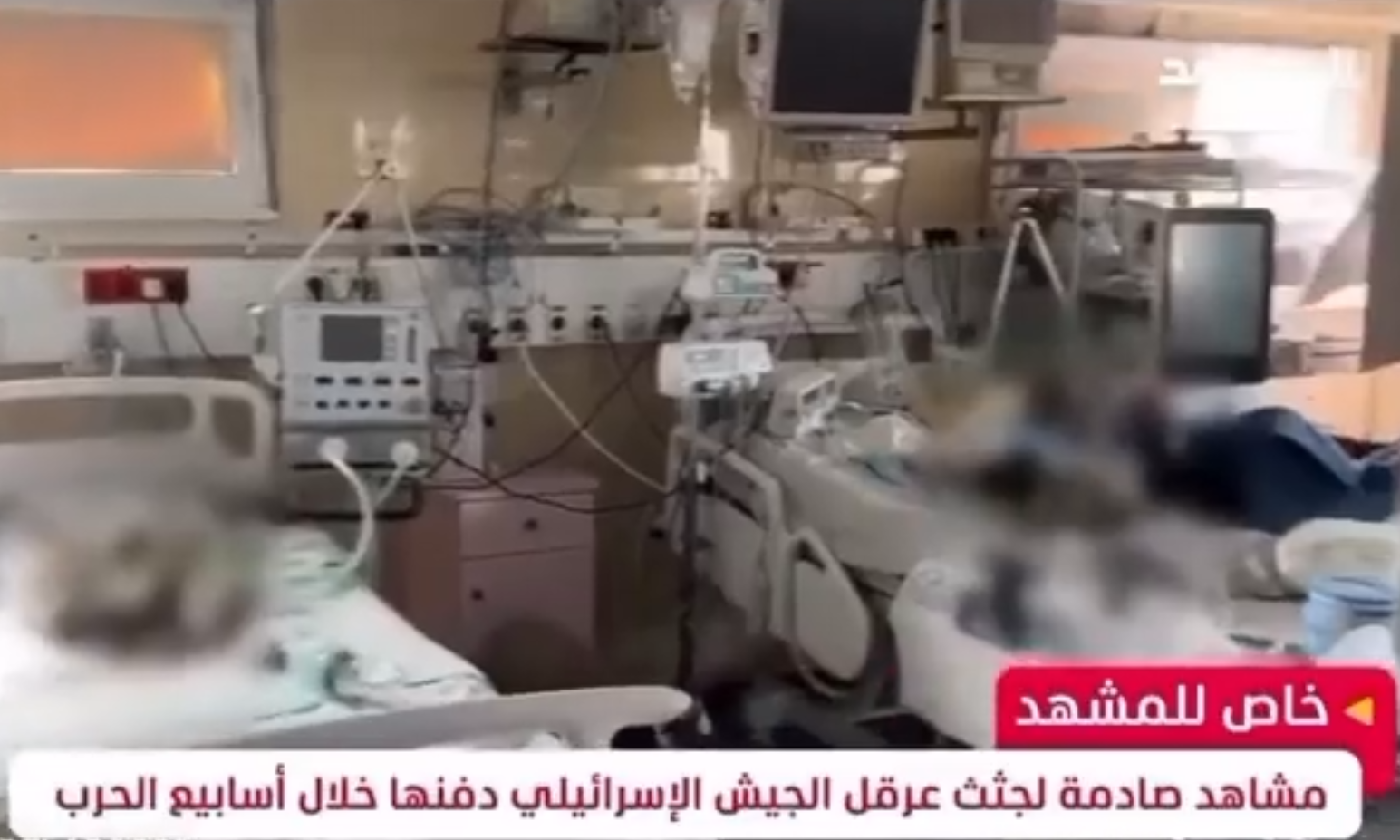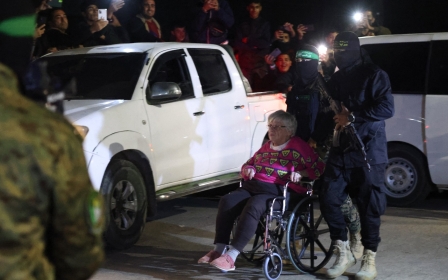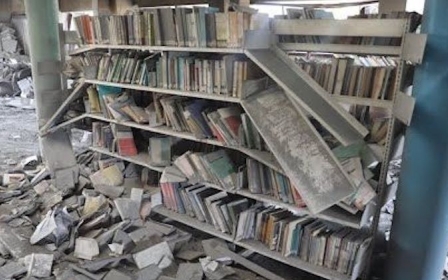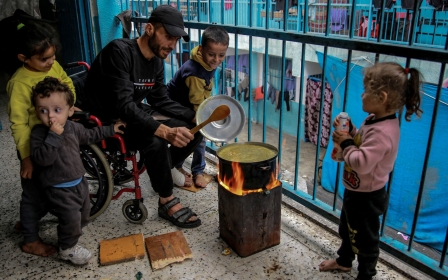Israel-Palestine war: Five dead premature babies discovered in Gaza hospital

The bodies of five premature Palestinian babies have reportedly been discovered in al-Nasr Hospital as reporters and aid workers sort through the remains of the bombed-out health facility during a truce in the Gaza Strip.
Journalists from Emirati TV channel Al-Mashhad discovered the decomposing remains of the children, who were not among those evacuated from the children's hospital after Israeli forces ordered patients and staff to leave on 10 November.
Footage released by the channel - which Middle East Eye has not been able to independently verify - appeared to show the babies still lying in their hospital beds.
Hospital director Mustafa al-Kahlot said in a statement to Euro-Med Human Rights Monitor that he sent an appeal to aid groups, including the International Committee of the Red Cross (ICRC), about the five children prior to their deaths but received no response.
The rights group called for the Israeli army to be "held accountable" for the deaths of the children and criticised the ICRC, who aided the evacuations from the hospital, for failing to help.
New MEE newsletter: Jerusalem Dispatch
Sign up to get the latest insights and analysis on Israel-Palestine, alongside Turkey Unpacked and other MEE newsletters
Middle East Eye contacted the ICRC for a statement, but had received no response at the time of publication.
More than 15,000 Palestinians, over half of them women and children, have been killed by Israel’s military operations in Gaza, which were launched after Hamas killed around 1,200 Israelis, mainly civilians, in a surprise attack on southern Israeli communities on 7 October.
Hospital attacks a 'tragedy'
At least 22 hospitals in Gaza, including some in the south, have been told by the Israeli army to evacuate or be targeted since 7 October.
Many doctors refused to comply with these orders, citing a lack of safety measures for patients and any guarantee of return.
Follow Middle East Eye's live coverage for the latest on the Israel-Palestine war
As the Israeli army expanded its ground attacks in Gaza, tanks and infantry forces encircled several hospitals in Gaza City and northern Gaza.
Patients and thousands of people taking shelter in these hospitals were eventually forced out at gunpoint, including at al-Shifa hospital, the al-Rantisi and the Indonesian Hospital, among others.

During the sieges on hospitals and subsequent forced expulsions, no aid or safety measures were provided for patients or medical staff, according to eyewitnesses.
Those trapped in hospitals - without food, water or electricity - included premature babies in incubators, ICU patients, people wounded from air strikes and elderly patients undergoing dialysis treatment.
Under these conditions, at least 50 patients died during the siege on al-Shifa Hospital alone.
World Health Organization spokesperson Margaret Harris told a United Nations briefing in Geneva on Tuesday that the collapse of al-Shifa Hospital - the largest medical facility in Gaza - was a "tragedy", adding that some of its medical staff had been detained by Israeli forces during a WHO evacuation operation.
James Elder, a spokesperson for the UN Children's Agency in Gaza, told reporters that hospitals in the enclave were full of children wounded by Israeli bombings and suffering from gastroenteritis due to drinking dirty water.
"I met a lot of parents... They know exactly what their children need. They don't have access to safe water and it's crippling them," he said.
Middle East Eye delivers independent and unrivalled coverage and analysis of the Middle East, North Africa and beyond. To learn more about republishing this content and the associated fees, please fill out this form. More about MEE can be found here.




